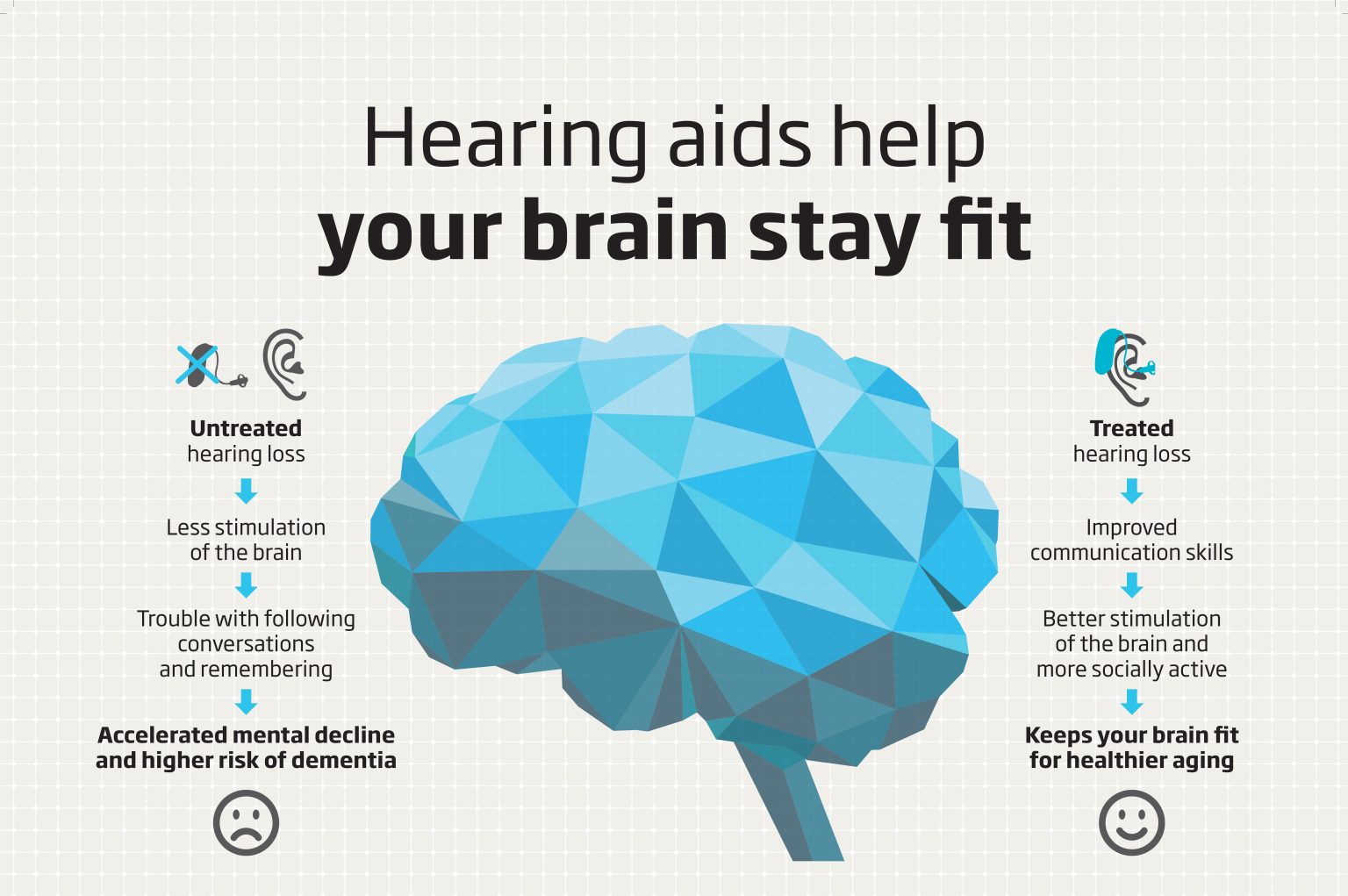Hearing Loss and
Cognitive Function
Relationship between hearing loss and cognitive function,
how DNN supports the brain?
Hearing deficit is shown to be one of the top risk factors for cognitive decline, accounting for 9% of cases of dementia. Several biological and psychological pathways that potentially connect the peripheral auditory function to broad-based cortical changes associated with declined cognitive function were proposed.
Previous slide
Next slide
Firstly, the degraded sound quality exacerbates listening efforts and hence, strains the thinking and memory system. Secondly, hearing loss causes the aging brain to shrink more quickly. Thirdly, the increased communication difficulties undermine individuals’ social life, thereby reducing intellectual stimulation from people interaction. If hearing loss is left untreated, not only one’s daily functioning is hindered but may also lead to cognitive decline.
As alleviation, studies showed that hearing aids help with certain extent of brain recovery, in turn, reducing the likelihood or delaying the development of dementia. To understand this better, we shall start by discussing how we listen and how the brain makes sense of sounds. The subsystems ‘orient’ and ‘focus’ in the brain allow us to form and select sound with minimal effort.


‘Orient’ is the full-sound representation in the brain. At the initial stage of processing, all the sounds we receive are shown to represent equally in our brain, and the brain is in search for acoustic features that is important. Neural code is crucial to make sense of what is happening in our surroundings and create a full sound scene in our head. Later at the ‘Focus’ stage, depending on what we would like to focus on, our brains can select and attend to the sources that are of significance based on the unique acoustic features. As such, our brain can encode the sound that is important to us and ignore the background noise.
Hearing loss, however, degrades the sound quality; resulting in a low-fidelity neural code that makes ‘Focus’ difficult. The ground-breaking technology, Deep Neural Network (DNN), highlights the support on brain by providing a full sound scene for natural sound processing. DNN technology creates an excellent signal-to-noise ratio to maximise listening and focuses on managing sounds to provide the most complete and natural sound picture possible. With the support of DNN, there is a 30% increase in sound processing power in the brain; in other words, DNN improves real-time processing for a signal more like what a healthy ear would deliver (Loong & Ng, 2020). DNN helps to slow down cognitive decline by supporting the brain on hearing and keeping the brain activated.



